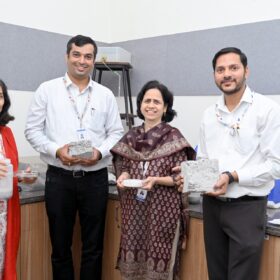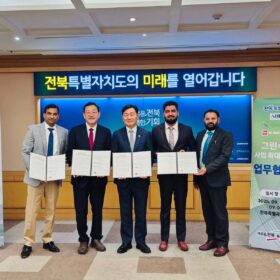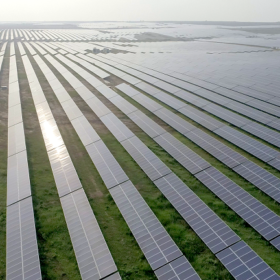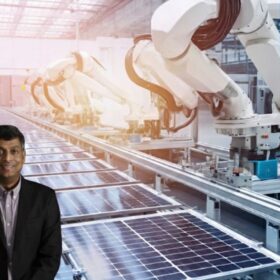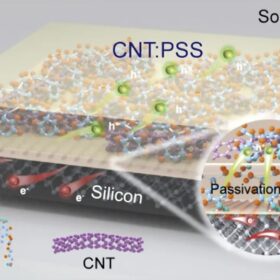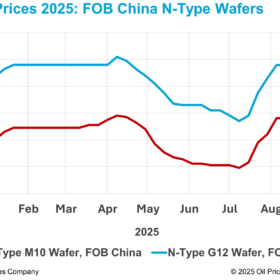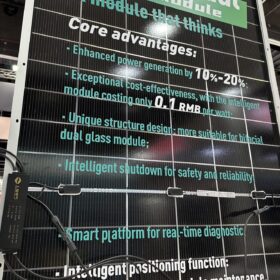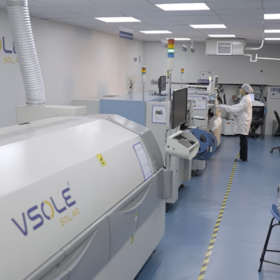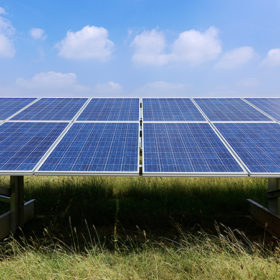MIT-WPU researchers develop scalable solar PV waste recycling process
Researchers at MIT World Peace University (MIT-WPU) have developed an innovative process that not only enables recovery of valuable materials from end-of-life solar panels but also upcycles non-recoverable fractions into construction materials such as bricks, blocks, and aggregates. This dual approach prevents hazardous waste from entering landfills while reducing dependence on virgin raw materials.
The Hydrogen Stream: KP Group signs MoU with Korea’s Jeonbuk province, AHES, and GH2 Solar
KP Group has signed a Memorandum of Understanding (MoU) with South Korea’s Jeonbuk State, South Korea’s AHES Co., Ltd., and GH2 Solar to collaborate on the large-scale deployment of electrolysis-based green hydrogen solutions.
New study reveals 3,343 GWp deployable ground-mounted solar potential in India
India has an estimated 3,343 GWp of deployable ground-mounted solar PV potential (DC capacity), significantly higher than the 2014 total estimate of approximately 748.98 GWp, according to a new comprehensive study by the National Institute of Solar Energy (NISE). This updated figure is based on an analysis of 27,571 km² of technically feasible land — about 6.69% of the country’s total identified wasteland area (412,458.37 km²).
ACME Group appoints COO to lead manufacturing business
ACME Group has appointed Jitendra Agrawal as chief operating officer to lead the growth of its renewable energy equipment manufacturing business in India and key international markets.
DAS Solar developing 23%-efficient silicon solar cell based on carbon nanotubes
The Chinese module maker said the solar cell was developed with the support of Hebei University. The device uses a carbon nanotube-based hole transport layer that could be used in TOPCon and HJT structures to boost output and reduce complexity.
China wafer prices end four-week rally amid stable polysilicon, cooling demand
In a new weekly update for pv magazine, OPIS, a Dow Jones company, provides a quick look at the main price trends in the global PV industry.
Waaree to scale up lithium battery fab to 20 GWh, electrolyzer capacity to 1 GW
Waaree Energies Ltd will scale up manufacturing capacity for lithium batteries from 3.5 GWh to 20 GWh and for electrolysers from 300 MW to 1,000 MW. It also plans inverter production capacity of 4 GW.
Solar module prices to rise 9% in Q4, says Wood Mackenzie
Wood Mackenzie says module prices will climb as China ends export rebates and consolidates polysilicon production.
Vsole Solar opens inverter factory
Vsole Solar Energy has inaugurated its fully integrated in-house solar inverter manufacturing facility with a capacity to produce more than 20,000 inverters every month.
Tata Power Renewable signs 80 MW FDRE PPA with Tata Power Mumbai Distribution
Tata Power Renewable Energy Ltd (TPREL) will develop a project combining solar, wind and battery storage components to ensure 80 MW firm and dispatchable renewable power supply during peak demand hours.
